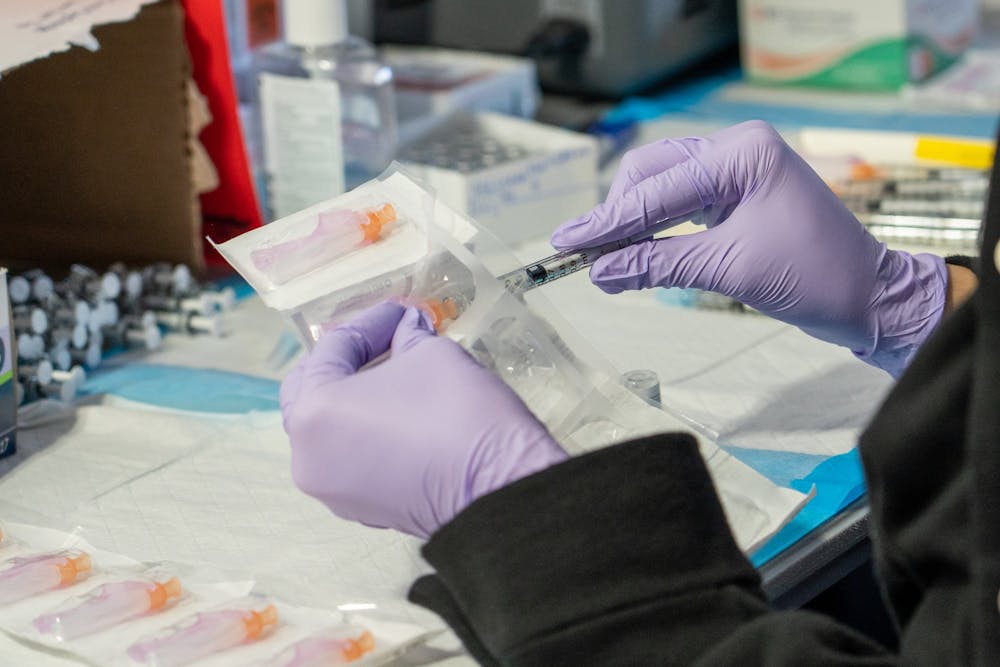Elon University junior Caroline Wolfe has not only seen the stress that COVID-19 has caused patients and medical staff from the back seat of an ambulance as an Emergency Medical Technician, but has also been a COVID-19 patient herself.
At the beginning of January when Wolfe was offered the opportunity to receive a COVID-19 vaccine as a frontline essential worker, she jumped at the chance to receive the first dose.
“I am lucky enough because I'm an EMT that I was able to get it,” said Wolfe. “So I wanted to take that opportunity because, like everyone else, I want COVID to be over, so I was like if I can be one of the first to get the vaccine, then I'm gonna take that chance to do that.”
North Carolina’s vaccine plan calls for administering the vaccine by determining level of risk. In the state, over 300,000 people in the first two priority groups — health care workers and long-term care staff and residents, and older adults — have been able to receive the COVID-19 vaccine.
According to the North Carolina Department of Health and Human Services, as access to the vaccine increases and moves down the levels, those who want the vaccine and are eligible are able to receive it at no cost through hospitals and local health departments.
While most college students fall under the last category of “general public” and do not have the vaccine available to them yet, some of the members of the Elon community are included in group 1A and have qualified to receive the vaccine.
Like Wolfe, senior Lindsay Barclay was able to receive the vaccine because of her work in the medical field, both as an EMT and by working at vaccine clinics for the Charles County Health Department in her home town in Maryland.
“I felt like one, because I'm working in the medical field, it's probably a good idea, and if people in that 1A group, which are first responders, healthcare providers, and those high risk people, if they choose to not get it, it's going to be harder and slower to move on to general population,” Barclay said.
Wolfe and Barclay both said their experience with taking the vaccine through their local clinics was a positive one — they did not experience serious side-effects and felt overall faithful and confident in the science that went into creating the vaccine.
Even with the sense of relief that came with receiving the vaccine, Barclay and Wolfe said they will not stop wearing masks and physical distancing.
“I'm just one person but I feel like [by] me getting the vaccine, I could potentially stop it from spreading to my friends or my family or other people around me so I feel like I am doing at least a small part to slow spread,” said Wolfe.


